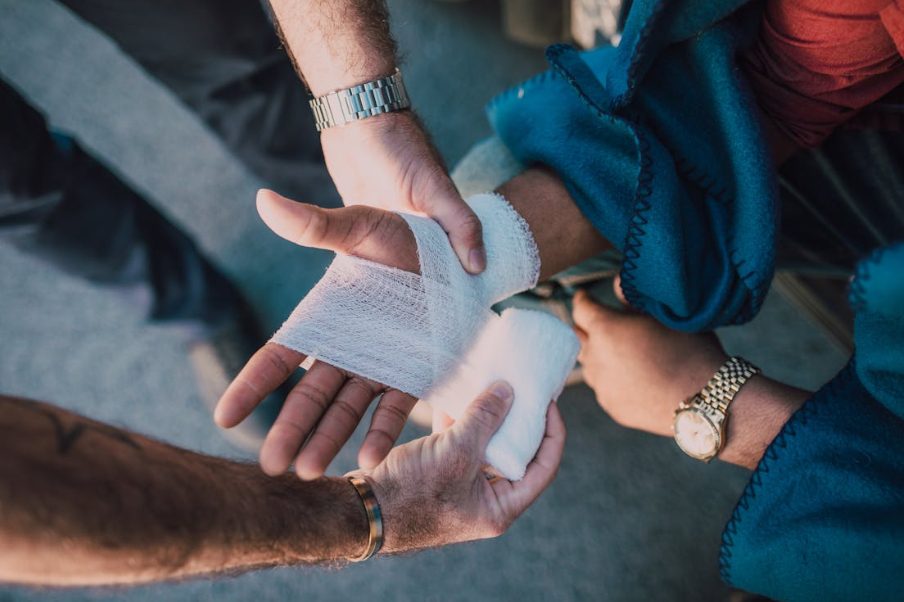There’s a secret to getting maximum insurance payout for your personal injury claim.
Insurance companies are in the business of keeping as much of your money as possible. Here’s the brutal truth… most people walk away with a tiny fraction of what they deserve.
The goal of an insurance adjuster is to settle your claim for as little as possible. With insurance payout negotiation tactics, that’s all it takes to turn the tables.
A professional law team that has been in the personal injury law firm business for a while changes the game completely. Represented clients tend to walk away with settlements that are three times larger than their non-represented counterparts.
Impressive, isn’t it?
So let’s get to it. Below, we share the strategies that will help you maximize compensation in personal injury cases.
In this article, you will discover:
- Case Value and Insurance Payout Negotiations
- Benefits of Legal Representation
- Settlement Negotiation Tactics
- When to Walk Away
- Evidence and Documentation Tips
Case Value and Insurance Payout Negotiations
Before you accept that first settlement offer…You need to know what your case is worth.
The biggest mistake most injury victims make:
They look at their current medical bills. They focus on their current medical expenses and lost income, then come up with some arbitrary multiplier for “pain and suffering.”
Insurance adjusters know this too. They will use the same tactic against you then hope you accept their offer as-is.
But here’s the secret: your compensation should cover more than medical expenses.
A proper case valuation includes:
- Medical expenses (past and future)
- Lost wages (past and future)
- Pain and suffering (physical and emotional)
- Property damage (if it applies to your case)
Having a solid understanding of your case value is the key to maximizing insurance payout. Without knowing what you are entitled to, you will be blindsided with lowball offers, and you will jump at them.
Benefits of Legal Representation
Here’s something that may surprise you:
91% of clients with an experienced personal injury lawyer end up receiving a payout settlement from insurance companies. That number drops to 51% for those without legal representation.
That’s almost a double difference.
But the news just gets better from there:
Personal injury attorneys have seen all the dirty tricks insurance companies pull. They know how to fight back against lowball offers and present cases that compel insurance companies to pay.
Insurance adjusters have legal teams to work on avoiding insurance payout. An individual on their own has almost no chance of getting what they deserve. That’s why having an experienced personal injury lawyer is so critical.
A good injury lawyer knows all the angles, case values, insurance company tricks, and more. They even know how to properly negotiate insurance companies to make sure you receive a fair insurance payout.
Negotiation Strategies
Okay, now that we’ve covered the basics of maximizing insurance payout, it’s time to dive into some specific strategies.
Here are some of the most effective negotiation techniques we’ve seen:
Document, Document, Document
Want to know the absolute easiest way to strengthen your case?
Document everything. We can’t emphasize this one enough.
Documentation is critical for personal injury cases. The more evidence you have from the start, the stronger your negotiating position becomes.
Essential documentation includes:
- Medical records/bills
- Photographs of injuries/scene
- Witness info
- Police reports
- Documentation of lost wages
- Pain journals/diaries
Many people make the mistake of thinking documentation only needs to start after an injury. The longer you wait, the more evidence you lose that could have otherwise swelled your payout.
Take photos of everything. Keep every receipt. Document every medical visit. This information will become ammunition during negotiations.
Don’t Rush to Settlement
This one is a shocker to most people:
70% of people who held out for a better settlement offer received settlements $30,700 higher on average compared to those who just accepted the first offer from an insurance company.
Think about that for a second. That’s a big difference in take-home money.
Why do insurance companies make such low initial offers?
They’re hoping you need the money right now. They’re betting on the fact that you don’t know your case’s true value and will accept an offer just to be done with it all.
The first offer will always be the lowest offer. Insurance adjusters have the expectation that you will negotiate, and they always have room to increase their offers substantially.
Waiting for a better settlement takes patience. But the financial reward at the end is worth it.
Settlement vs Trial
Something to keep in mind:
Around 95-96% of personal injury cases settle before they even reach trial. Trials are costly, time-consuming, and risky for everyone involved.
Knowing when to push toward a trial is a critical piece of negotiation leverage.
Oftentimes, just the threat of going to trial is enough to get insurance companies to sweeten their settlement offers. Trials are riskier for insurance companies. Juries have the potential to award much larger sums than settlement amounts.
Strategic considerations here are:
- Evidence strength
- Liability clarity
- Available coverage
- Time and cost of trial
In most cases, settlements are the best course of action. But having legal counsel willing to take your case to trial will show insurance companies that lowballing won’t work.
Calculate Future Damages
Another big mistake we see over and over in personal injury settlements:
Failure to consider future damages. Injuries often involve ongoing medical costs, therapy, lost earning capacity, or permanent disabilities.
Accepting a settlement that doesn’t factor in these future costs is leaving money on the table.
Once you sign a settlement, you can’t go back and ask for more money if you end up with additional bills down the road.
Future damages may include:
- Long-term medical care
- Physical/occupational therapy
- Psychological counseling
- Home modifications
- Loss of future earnings
Medical experts, economic experts, and others can be brought in to testify about future costs. Future damages are important in cases with serious or permanent injuries.
Know Comparative Negligence
Negligence rules in your state can have a huge impact on compensation. In many states, if you share any fault for an accident, your payout is reduced.
Comparative negligence rules will try to pin as much blame on the injured party as possible to lower payouts.
If an insurance company can show that you were 30% at fault in an incident, they can reduce the payout by 30%. In a $100,000 case, that’s $30,000 in your pocket.
Beating these fault arguments takes hard evidence and legal expertise.
Negligence defenses are one more area where professional representation will make a big difference in final payouts.
Timeline Expectations
Personal injury cases can take time. On average, personal injury cases, such as motor vehicle accidents, last about 20 months. More complex cases can take much longer.
Timeline expectations are important for a couple of reasons:
First, it allows you to have reasonable expectations. Settling early will result in lower payouts in almost all cases.
Second, it’s why having an attorney working for you on a contingency fee basis is beneficial. They handle the long process while you focus on recovery.
Bottom Line
Maximizing compensation in a personal injury case isn’t a matter of luck or chance. It’s about using the right strategies, documentation, and knowing how the system works.
The difference between jumping on the first settlement offer and negotiating strategically is tens of thousands of dollars. The average personal injury settlement is now at about $113,391. Playing the game correctly will make a huge difference in your take-home payout.
Key strategies we’ve covered include:
- Knowing full case value, including future damages
- Using professional legal representation
- Documenting, documenting, documenting
- Never accepting first offers
- Willingness to negotiate or go to trial
Insurance companies have every incentive to pay out as little as possible. Leveling the playing field takes information, strategy, and usually legal help.



































